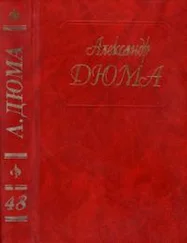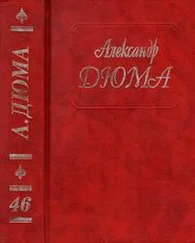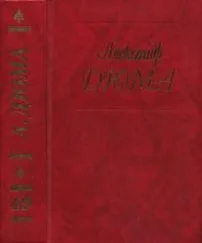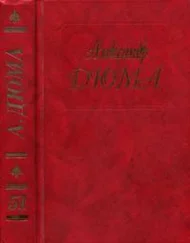"Exactly."
"Oh, oh! my dear Aramis, you seem to think you are only five and twenty years of age still."
"Yes, and that is not all, for he believes you are fifty."
"I should have amazingly liked to have seen him at work."
"Yes, indeed."
"A fellow who has got the gout?"
"Yes."
"Who has lost three of his teeth?"
"Four."
"While I, look at mine." And Porthos, opening his large mouth very wide, displayed two rows of teeth not quite as white as snow, but even, hard, and sound as ivory.
"You can hardly believe, Porthos," said D'Artagnan, "what a fancy the king has for good teeth. Yours decide me; I will present you to the king myself."
"You?"
"Why not? Do you think I have less credit at court than Aramis?"
"Oh, no!"
"Do you think I have the slightest pretensions upon the fortifications at Belle–Isle?"
"Certainly not."
"It is your own interest alone which would induce me to do it."
"I don't doubt it in the least."
"Well, I am the intimate friend of the king; and a proof of that is, that whenever there is anything disagreeable to tell him, it is I who have to do it."
"But, dear D'Artagnan, if you present me—"
"Well!"
"Aramis will be angry."
"With me?"
"No, with me ."
"Bah! whether he or I present you, since you are to be presented, what does it matter?"
"They were going to get me some clothes made."
"Your own are splendid."
"Oh! those I had ordered were far more beautiful."
"Take care: the king likes simplicity."
"In that case, I will be simple. But what will M. Fouquet say, when he learns that I have left?"
"Are you a prisoner, then, on parole?"
"No, not quite that. But I promised him I would not leave without letting him know."
"Wait a minute, we shall return to that presently. Have you anything to do here?"
"I, nothing: nothing of any importance, at least."
"Unless, indeed, you are Aramis's representative for something of importance."
"By no means."
"What I tell you—pray, understand that—is out of interest for you. I suppose, for instance, that you are commissioned to send messages and letters to him?"
"Ah! letters—yes. I send certain letters to him."
"Where?"
"To Fontainebleau."
"Have you any letters, then?"
"But—"
"Nay, let me speak. Have you any letters, I say?"
"I have just received one for him."
"Interesting?"
"I suppose so."
"You do not read them, then?"
"I am not at all curious," said Porthos, as he drew out of his pocket the soldier's letter which Porthos had not read, but D'Artagnan had.
"Do you know what to do with it?" said D'Artagnan.
"Of course; do as I always do, send it to him."
"Not so."
"Why not? Keep it, then?"
"Did they not tell you that this letter was important?"
"Very important."
"Well, you must take it yourself to Fontainebleau."
"To Aramis?"
"Yes."
"Very good."
"And since the king is there—"
"You will profit by that."
"I shall profit by the opportunity to present you to the king."
"Ah! D'Artagnan, there is no one like you for expedients."
"Therefore, instead of forwarding to our friend any messages, which may or may not be faithfully delivered, we will ourselves be the bearers of the letter."
"I had never even thought of that, and yet it is simple enough."
"And therefore, because it is urgent, Porthos, we ought to set off at once."
"In fact," said Porthos, "the sooner we set off the less chance there is of Aramis's letter being delayed."
"Porthos, your reasoning is always accurate, and, in your case, logic seems to serve as an auxiliary to the imagination."
"Do you think so?" said Porthos.
"It is the result of your hard reading," replied D'Artagnan. "So come along, let us be off."
"But," said Porthos, "my promise to M. Fouquet?"
"Which?"
"Not to leave Saint–Mande without telling him of it."
"Ah! Porthos," said D'Artagnan, "how very young you still are."
"In what way?"
"You are going to Fontainebleau, are you not, where you will find M. Fouquet?"
"Yes."
"Probably in the king's palace?"
"Yes," repeated Porthos, with an air full of majesty.
"Well, you will accost him with these words: 'M. Fouquet, I have the honor to inform you that I have just left Saint–Mande.'"
"And," said Porthos, with the same majestic mien, "seeing me at Fontainebleau at the king's, M. Fouquet will not be able to tell me I am not speaking the truth."
"My dear Porthos, I was just on the point of opening my lips to make the same remark, but you anticipate me in everything. Oh! Porthos, how fortunately you are gifted! Years have made not the slightest impression on you."
"Not over–much, certainly."
"Then there is nothing more to say?"
"I think not."
"All your scruples are removed?"
"Quite so."
"In that case I shall carry you off with me."
"Exactly; and I will go and get my horse saddled."
"You have horses here, then?"
"I have five."
"You had them sent from Pierrefonds, I suppose?"
"No, M. Fouquet gave them to me."
"My dear Porthos, we shall not want five horses for two persons; besides, I have already three in Paris, which would make eight, and that will be too many."
"It would not be too many if I had some of my servants here; but, alas! I have not got them."
"Do you regret them, then?"
"I regret Mousqueton; I miss Mousqueton."
"What a good–hearted fellow you are, Porthos," said D'Artagnan; "but the best thing you can do is to leave your horses here, as you have left Mousqueton out yonder."
"Why so?"
"Because, by and by, it might turn out a very good thing if M. Fouquet had never given you anything at all."
"I don't understand you," said Porthos.
"It is not necessary you should understand."
"But yet—"
"I will explain to you later, Porthos."
"I'll wager it is some piece of policy or other."
"And of the most subtle character," returned D'Artagnan.
Porthos nodded his head at this word policy; then, after a moment's reflection, he added, "I confess, D'Artagnan, that I am no politician."
"I know that well."
"Oh! no one knows what you told me yourself, you, the bravest of the brave."
"What did I tell you, Porthos?"
"That every man has his day. You told me so, and I have experienced it myself. There are certain days when one feels less pleasure than others in exposing one's self to a bullet or a sword–thrust."
"Exactly my own idea."
"And mine, too, although I can hardly believe in blows or thrusts that kill outright."
"The deuce! and yet you have killed a few in your time."
"Yes; but I have never been killed."
"Your reason is a very good one."
"Therefore, I do not believe I shall ever die from a thrust of a sword or a gun–shot."
"In that case, then, you are afraid of nothing. Ah! water, perhaps?"
"Oh! I swim like an otter."
"Of a quartan fever, then?"
"I have never had one yet, and I don't believe I ever shall; but there is one thing I will admit," and Porthos dropped his voice.
"What is that?" asked D'Artagnan, adopting the same tone of voice as Porthos.
"I must confess," repeated Porthos, "that I am horribly afraid of politics."
"Ah, bah!" exclaimed D'Artagnan.
"Upon my word, it's true," said Porthos, in a stentorian voice. "I have seen his eminence Monsieur le Cardinal de Richelieu, and his eminence Monsieur le Cardinal de Mazarin; the one was a red politician, the other a black politician; I never felt very much more satisfied with the one than with the other; the first struck off the heads of M. de Marillac, M. de Thou, M. de Cinq–Mars, M. Chalais, M. de Bouteville, and M. de Montmorency; the second got a whole crowd of Frondeurs cut in pieces, and we belonged to them."
Читать дальше












